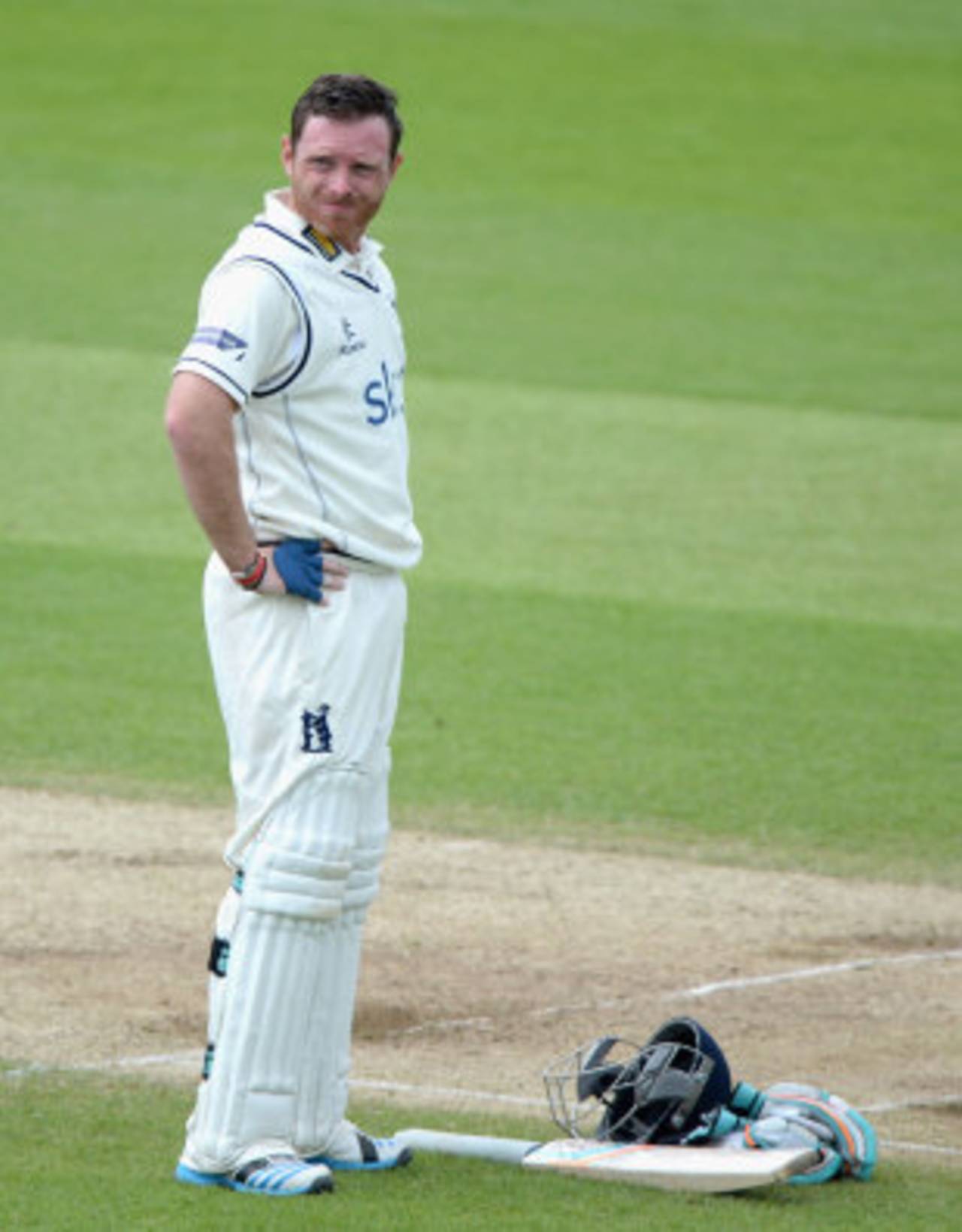England batsman
Ian Bell has said increased anti-corruption measures could be needed for televised domestic games to prevent further cases of spot-fixing like those
revealed by Lou Vincent to the ACSU. The ECB, however, does not believe there is a need for the same level of restrictions on electronic devices players are allowed to use in domestic cricket as there is at international level.
The
vulnerability of county cricket is back in the headlines after the reports of Vincent's confessions and details of the breadth of fixing at domestic level around the world. Three county matches are among those under scrutiny, all of which were televised in Asia.
For international matches, players and support staff are required to hand over their phones, iPads and other electronic devices to the team manager or security officer and are not allowed them back until the end of the day. In county cricket, there are no such steps taken. Though there is no suggestion that players were directly tapped up in the dressing room, it does leave a potential loophole to be exploited.
"From where I can see, I haven't played one [on TV] for a while for Warwickshire, but it's just a normal county game," Bell said. "It's different internationally where you have to hand your phones in. In county games there is nothing. You could be on your phone all day if you want. Maybe if it is on television then it has to be the same as an international game.
"I've never seen it [fixing] at domestic level but then you hear what has been going on, not just in England but all around the world … there probably has to be a bit more done domestically as well."
The most recent county match to have emerged from Vincent's claims is from 2011. That was the year the ECB's anti-corruption unit was set up under Chris Watts, a former senior detective with the Metropolitan Police, and his team now have an official at every televised match. The ECB does not feel further restrictions are required.
"We don't feel the need to take away players' mobile phones or laptops at televised county matches. It is a judgement call made by the anti-corruption unit," an ECB spokesman said. "We are constantly vigilant but don't believe corruption is endemic in county cricket. We take measures proportional to the level of threat.
"The ECB's anti-corruption unit is very active around televised county matches. Chris Watts set up the unit in 2011 and his team has been strengthened so that there are now seven anti-corruption officers who work on the domestic programme.
"They are a physical presence at every televised match and frequently go into dressing-rooms and talk to players. We certainly can't be complacent. The Mervyn Westfield affair showed that some players - and particularly young players - can be vulnerable."
Westfield was jailed for four months in 2012 for his part in spot-fixing during a televised Pro40 match against Essex in 2009 after being tapped up by former Pakistan legspinner Danish Kaneria.
Bell said he had never been approached at any level or spoken to anyone in English domestic cricket who had concerns over a match being rigged. He was shocked by the extent of the claims emerging from Vincent during his plea-bargain with the ICC.
"It's frustrating to see it cropping again. Lou Vincent is saying that it's in five different countries that he's played in. That's unbelievable. You'd like to think we can get to the bottom of it but whether we will or not is a difficult one to answer.
Bell was not involved in the 2010 Test against Pakistan, at Lord's, which is the highest profile recent case of spot-fixing. It led to jail terms for Salman Butt, Mohammad Amir and Mohammad Asif, and Bell believes harsh penalties are the way forward.
"Seeing people getting the right penalties for a massive wrongdoing in the game, it's important that we have that. The harsher the penalties, the better. The last thing you want is to look back on games you've played in and have to ask 'was that real or was it not?' It takes away some of the feelings you have, when you look back and are not quite sure."
Investec, the specialist bank and asset manager, is the title sponsor of Test match cricket in England. Visit investec.co.uk/cricket or follow us @InvestecCricket
Andrew McGlashan is an assistant editor at ESPNcricinfo
